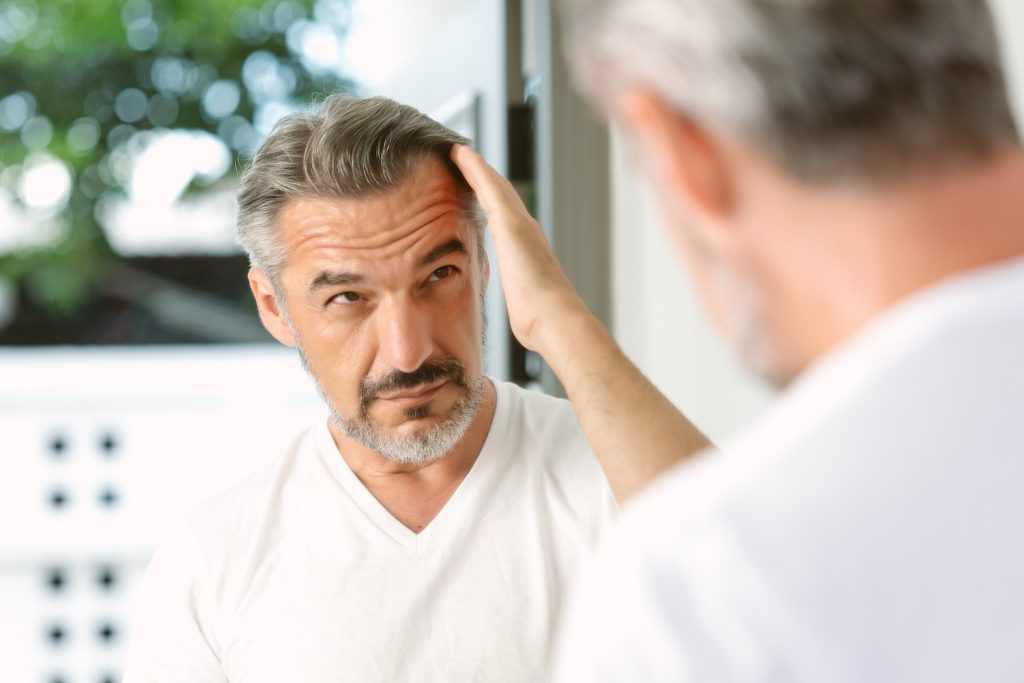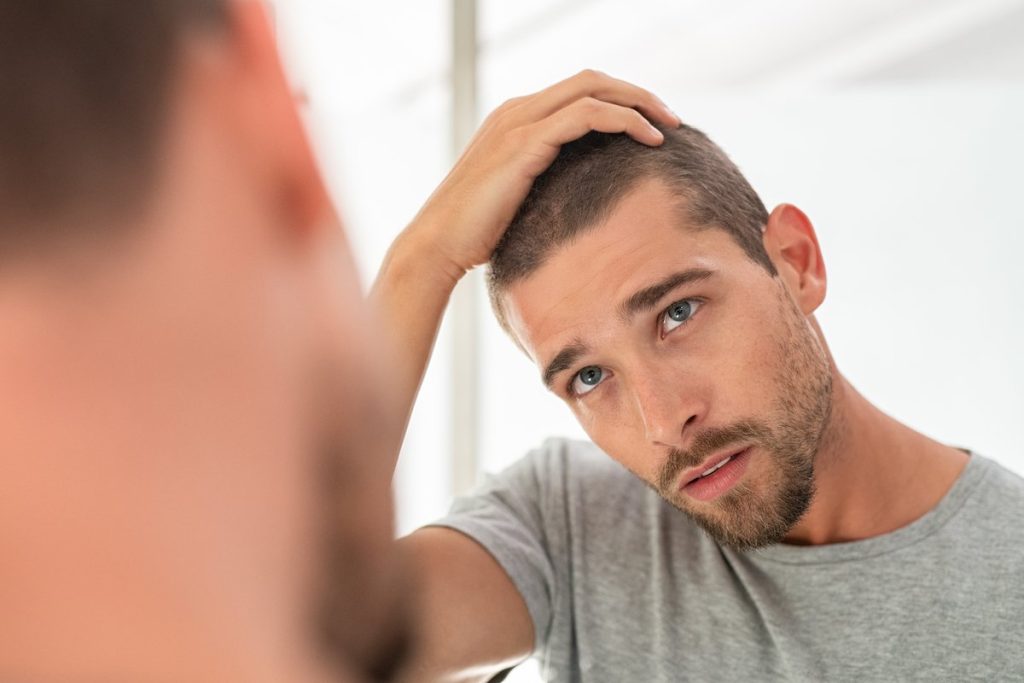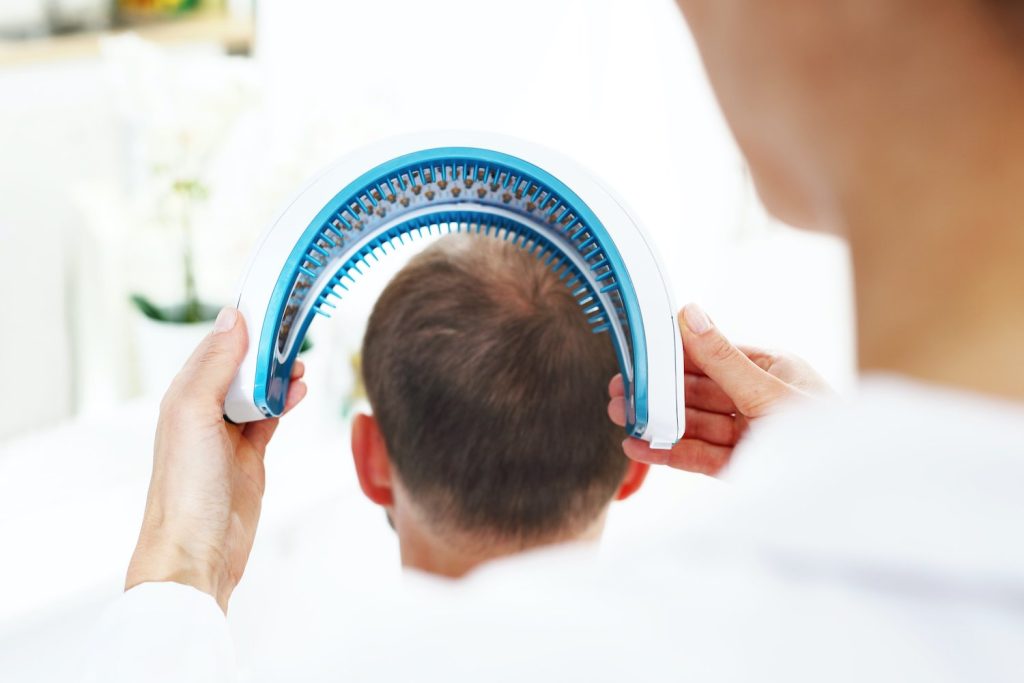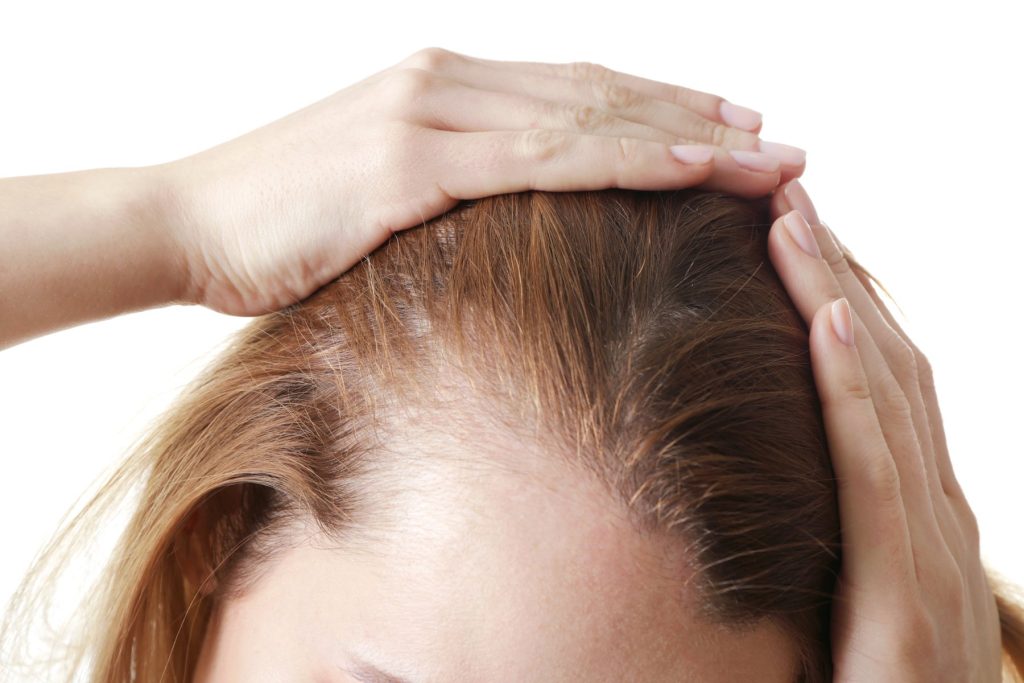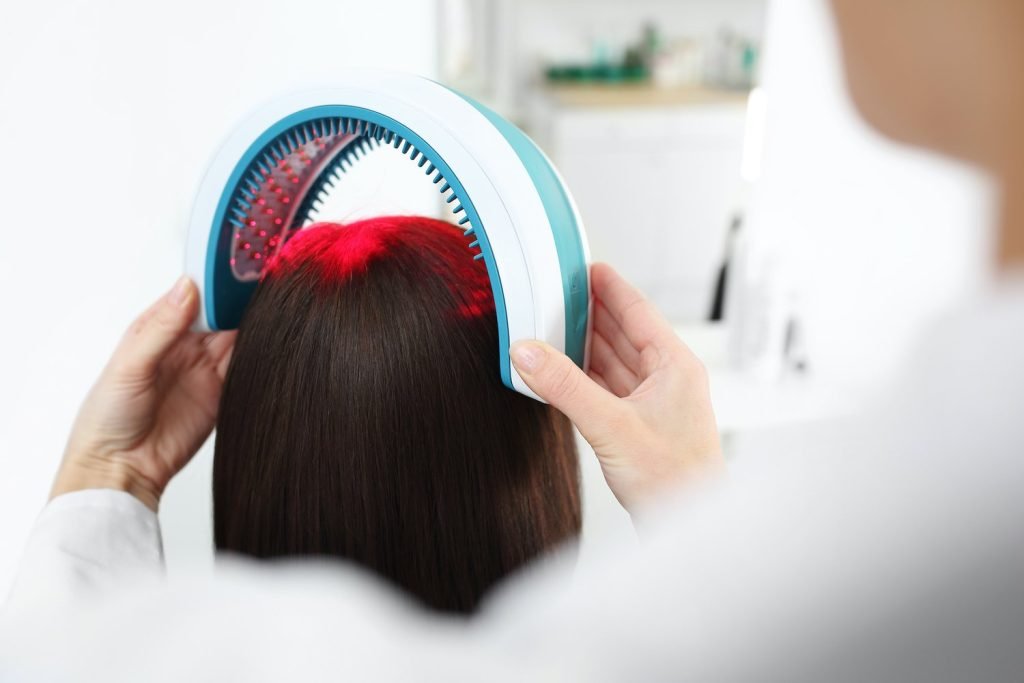- Hairline Clinic - Hair Loss Treatment in Akron and Cleveland Ohio - Schedule FREE Consultation
- 330.285.4815
- CONTACT US
Thyroid Conditions, Hair Health - and Hair Loss
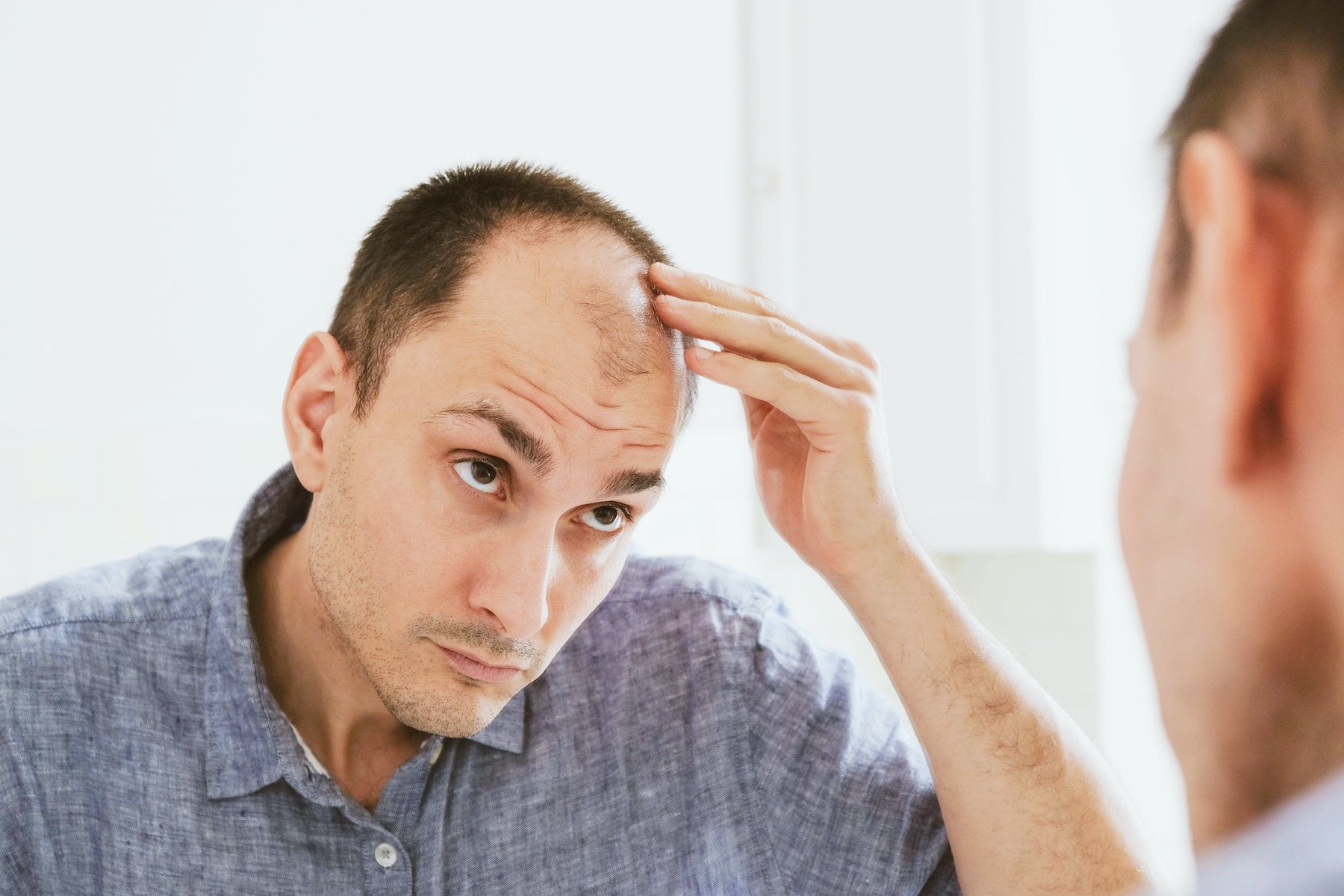
There are several ways in which the body’s hormonal production can impact hair, including causing hair loss. Understanding the problems can help address those impacts.
The human body has several – nine, to be specific – glands that make up the endocrine system that secretes hormones that regulate how the body works. Those functions include growth and development in children and adolescents, the body’s metabolism throughout life, stress responses, and reproductive functions. The thyroid gland – located near the Adam’s apple in the throat – is one of the largest of these, and it influences heart rate, metabolism, and growth.
So given the thyroid’s responsibility for growth, it is therefore responsible for hair growth and hair health in general. Which means any disruption or condition affecting the thyroid can affect hair growth leading to any number of male and female hair loss conditions. Hair loss situations caused by thyroid conditions are best left to a physician than your local hair loss treatment clinic.
Various thyroid conditions and how they affect hair growth and hair loss
According to a study published in 2015 (“Thyroid hormone signaling controls hair follicle stem cell function,” Constanza Contreras-Jurado, et al. Molecular Biology of the Cell), both underperforming and overperforming thyroids – hypothyroidism and hyperthyroidism, respectively – cause hair loss. Other research shows these, and other thyroid conditions very often impact hair health in the following ways:
Hyperthyroidism – With excess hormone production, hair follicles grow at a faster-than-normal rate, speeding up the process where hair sheds (all hair sheds after going through various cycles of growth, on a staggered basis of course).
Hyporthyroidism – This is where insufficient hormone production means slower growth cycles, which leads to brittle and weak hair follicles that fall out prematurely.
Graves’ disease – This is an autoimmune disease involving the thyroid, causing slower growth, brittle and weak follicles, and premature shedding (loss).
Hashimoto’s thyroiditis – This is an inflammation of the thyroid that essentially results in hypothyroidism, with its same effects.
How to improve thyroid and hair health
While many thyroid conditions can and often do have a genetic basis, there are healthy behaviors that contribute to thyroid health. Most are the kinds of things a person should do to stay healthy overall – eat a balanced diet, drink sufficient amounts of water, and avoid exposure to toxic pesticides, heavy metals, tobacco smoke, and limit alcohol consumption – but there are a few proactive steps one can take:
- Consume iodine-rich foods, such as seaweed, fish (richest sources are cod, tuna, shrimp, sardines, salmon), dairy, and iodized salt.
- Consume selenium, which helps as well – and some of it is found alongside iodine in fish, plus poultry, whole grains, and Brazil nuts.
- Avoid overconsumption of foods that, while healthy in moderate consumption, can be detrimental in excess. Those include soy and cruciferous vegetables (broccoli, cabbage, cauliflower). Rare is the person who eats too much broccoli.
Hair health can be hurt, or helped, with lifestyle choices around diet, exercise – and even getting a good night’s sleep.
We provide cosmetic hair loss solutions for men and women suffering from thyroid conditions at our hair loss treatment clinics in Cleveland and Akron Ohio.
If you are a man or woman suffering from hair loss due to thyroid-related conditions, we provide industry-leading, individualized hair loss treatments and hair loss solutions in Cleveland and Akron, OH. Schedule a FREE confidential consultation and evaluation at our Akron Hair Loss Treatment Clinic or our Cleveland Hair Loss Treatment Clinic by calling 330.633.5225 today!
Hair Loss Treatments
Men's Hair Loss Solutions
Women's Hair Loss Solutions
Men's Hair Loss Solutions
Ready for change? Call our hair loss experts at (330) 285-4815 to schedule a FREE appointment.
HairLine Clinic is an industry leader providing individualized hair loss treatments to men and women experiencing hair loss in Akron and Cleveland, Ohio.


